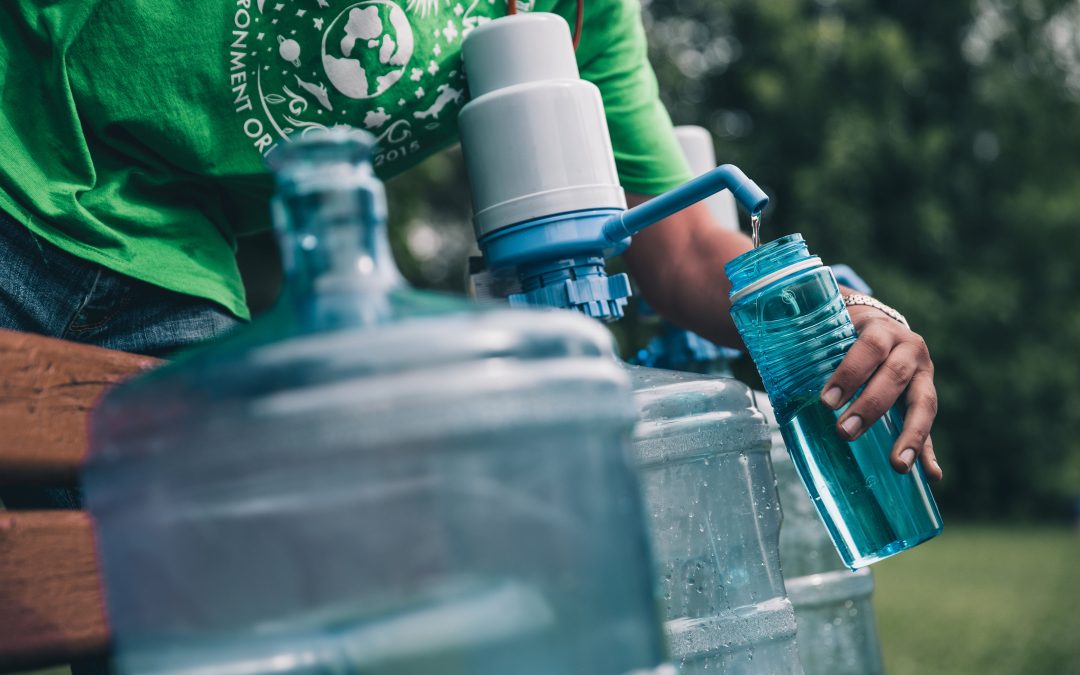The safety and cleanliness of drinking water have been central to some harrowing hardships for Americans across the country. The water crisis in Flint, Michigan was so dire that the city of Flint declared a state of emergency and the Michigan National Guard had to distribute bottled water. Years later, Flint residents are still suffering from depression and PTSD from their experience and despite this crisis’s illumination of the importance of clean water, there are still challenges the public faces when it comes to the exposure to contaminants in drinking water.
In a recent report by The New York Times, the concern over modern contaminants and threats to consumers is still rising.
Two compounds, known as PFOA (Perfluorooctanoic Acid) and PFOS (Perfluorooctane Sulfonate), are part of the larger subset of Per- and Polyfluoroalkyl Substances, or PFAS.
PFAS have been used in industry and consumer products since the 1940s, according to the United States Environmental Protection Agency or EPA, but their rise in prominence and threat to our health is still critical.
We covered how the EPA was planning to deal with PFAS in another one of our blog posts, but the hazards to humans aren’t just in our drinking water.
PFAS can also be found nearly everywhere from the air you breathe, to the food you consume and its packaging, the soil and water at or near waste sites, household products such as cleaning products or non-stick cookware and personal care products such as shampoo, dental floss and cosmetics.
Furthermore, the risks that PFAS pose to humans is wide-ranging and still a major cause for concern.
- Decreased fertility or increased high blood pressure in pregnant women.
- Increased risk of some cancers such as prostate, kidney, and testicular cancers.
- Increased cholesterol levels and a risk of obesity.
- Developmental effects or delays in children, including low birth weight, accelerated puberty, bone variations, or behavioral changes.
- Reduced ability of the body’s immune system to fight infections, including reduced vaccine response.
- Interference with the body’s natural hormones.
To find out if your city’s water supply is at risk, check out our blog.
The EPA has standards in place for our drinking water as well as water suppliers that were enacted via the Safe Drinking Water Act in 1974 with amendments added in 1986 and 1996. Despite these regulations, most water treatment plants are not equipped to eliminate PFAS. Even contaminants such as Nitrate are still not completely eliminated and also pose threats to our health such as colorectal cancer (CRC) risk.
Lead has been mostly reduced in our water supplies, but there is still aging infrastructure that leads to contamination such as old distribution pipes.
According to Detlef Knappe, a professor of civil, construction and environmental engineering at North Carolina State University who was a contributor to The New York Times report, the upkeep of these infrastructures is not keeping up with the rate the systems need to be maintained.
This aging infrastructure has been at the root of many of the national crises and combined with extreme weather conditions, it has led to untreated, bacteria-laden water traveling to people’s homes.
What Can You Do About It?
According to a 2020 study of PFAS and how filters and procedures can reduce PFAS, Dr. Knappe and his co-authors found that, on average, pitcher and refrigerator filters that use activated carbon reduced PFAS levels by about 50 percent. More advanced filtration systems that use a process known as reverse osmosis were over 90 percent effective.
That brings us to what Basin Water Solutions can do for you. We have several options to help treat and filter your water to keep you from consuming those harmful PFAS.
Reverse Osmosis can filter your water by getting tap water across a semipermeable membrane in order to get rid of any impurities that may be in the water. This process gets rid of salt and other inorganic solids by removing them from the solution. Chloramine, Chlorine, Fluoride, pesticides, Nitrates, Sulfates and others are removed via Reverse Osmosis.
We also provide Water Treatment and Commercial Water Treatment that uses the latest integrated technologies to effectively remove Iron, Calcium, Manganese, Arsenic, heavy metal, Fluoride, Sulfide, Nitrate and many other contaminants from water sources.
Lastly, we can install a Whole House Water Filtration system and water softeners in your home. They filter out and lessen the hardness of water. Measured in grains per gallon (GPG), hardness refers to the amount of dissolved Magnesium and Calcium in your water. Anything above 3 GPG is considered harmful to the home plumbing, appliances, water heaters, and fixtures. Furthermore, Chloramines are common disinfectants for drinking water, especially in industrial water. Water softeners will properly balance out the minerals and you won’t have to worry about Chloramines.
The concern about PFAS and their impact on our drinking water has never been higher. That’s why it’s even more important to clean and purify your water.
Basin Water Solutions can install, repair, and maintain these systems with superior customer service to give you and your family that invaluable peace of mind that your water is as safe as possible.

